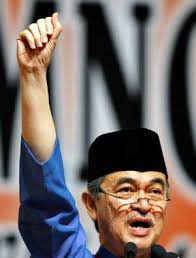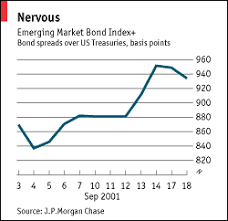
I picked up this letter written to Malaysia Today by a chap calling himself “SAS ( Saham Amanah Sabah) Victim.” This is interesting subject, perhaps to me, because I have many friends in KK who had invested a fair bit and lost their pants in this investment, after a steep fall of the SAS unit price during Yong Teck Lee’s time as Chief Minister. Till today many curse and swear Yong Teck Lee and Ambrose Lee whom they say is the “mastermind” behind the lost in their life-savings.
What happen was in 1998 there was a share swap deal between Warisan Harta Sabah Sdn Bhd of which Yong Teck Lee was Chairman and Suniwang Holdings Sdn Bhd of which Ambrose Lee was the Boss. The rational of entering into this transaction was that the Government through Warisan Harta could utilise a RM50 million fund. Yes Ringgit 50 juta. The RM50 million was to support counters in which Warisan Harta and Sabahans had investments.
As a result of the share swap deal Warisan Harta lost RM114 million. The RM114 million was lost after Warisan Harta under the chairmanship of Yong Teck Lee disposed its blue chip MISC shares in return for the acquisition of NBT shares and Sugar Bun shares. Both counters are delisted ever since. Both of these share counters NBT and Sugarbun were connected to Suniwang which was controlled by Ambrose Lee.
A whopping RM 114 million losses in this deal for the State.
So don’t you have to have somewhat of a criminal mind to be a politician? Most politicians are devious. They’ll sell “hope” to the public and they’ll make it seem very rosy and people don’t even know that their investment will be paid for out of their hard-earned savings. These politicians act like it’s fine. Politicians have no problem telling people something’s fine when it’s not. Politicians are worse than criminals because really when you think about it all a criminal does is just steal your money… what politicians do is to lie to people. They’ll lie to you… they’ll tell you what you want to hear… it’s a good deal…plenty of money to make…State Government investment, so must be good. People don’t know people like Ambrose Lee the CEO of Public Companies has got no money and cannot give personal guarantees for 200 million dollars to get this deal fix. It will surely fail because the motive is to milk the cow dry on the expanse of the people.
So I mean aren’t politicians similar to criminals? I know there are exceptions to the rule – like Yong Teck Lee? Don’t make me puke lah! Read below and make your opinion heard.
Birds of the feather flock together: Joseph Ambrose Lee comes to the rescue of Yong Teck Lee
By SAS Victim
For more than a decade Sabahans have forgotten about Joseph Ambrose Lee Yok Min, 52, who once boasted of himself as the new Syed Kechik of Sabah, after he failed in his scandalous schemes to take over the RM30-billion timber wealth of Yayasan Sabah.
The late Syed Kechik was the de facto Chief Minister of Sabah when he was legal adviser to the late Tun Datu Mustapha bin Datu Harun who ruled the state with an iron-fist from 1967 to 1976.
Ambrose was back in Kota Kinabalu, having made his home in Perth, on August 7 at the Sutera Harbour Resort defending his bosom buddy Yong Teck Lee, who was Sabah Chief Minister from 1996 to 1998, over the fiasco of Saham Amanah Sabah (SAS) arising from a scandalous share-swap between Warisan Harta, the Sabah government’s investment arm, and Ambrose’s Suniwang Holdings Sdn Bhd.
More than 55,000 Sabahans, most of them pensioners and low-income civil servants, lost all their life-savings when the price of the state unit trust plummeted to 17 sen from its RM1.00 unit price soon after he sealed the deal when he became Chief Minister.
At the press conference, Ambrose (that’s what his few friends and many foes call him) made a feeble attempt to defend Yong over the missing RM50 million from the share-swap which Yong has been unable to explain to Sabahans.
Ambrose stressed that he paid RM50 million in cash through Innosabah Securities, the stockbroker, to Warisan Sabah in a deal that saw him exchanging his over-priced shares of NBT and Sugar Bun for Warisan’s blue chip MISC shares.
No one has disputed this. But what has not been answered is that the money received by Warisan was never given to SSB as Yong has said. Yong was the Chief Minister and Warisan Chairman. Yet he has failed to tell Sabahans what happened to the RM50 million which he, as Warisan Chairman, received and which he never gave to SSB.
Dr Yee Moh Chai, Minister of Resource Development and Information Technology, told the assembly on August 3 that Saham Sabah Berhad (SSB) which manages the SAS has confirmed to him that it has never received the RM50 million out of the share dealings of Warisan Harta.
At the assembly, Dr Yee pointed out that it was Yong who linked the disastrous share-swap of blue chip MISC shares belonging to Warisan with shares of NBT and Sugar Bun, which were cornered speculative stocks. The swap resulted in a loss of RM114 million to Warisan.
Yong had defended the share-swap. As Warisan’s chairman, he was on record to say that “the wider policy in entering into this transaction was that the Government through Warisan Harta could utilise the RM50 million fund.”
Yong said the RM50 million was to support counters (stocks) on the then Kuala Lumpur Stock Exchange (KLSE,now Bursa) in which Warisan and the people of Sabah had investments. The true outcome, according to Dr Yee, is that as a result of the share-swap deals, Warisan Harta lost RM114 million.
Ambrose blamed Warisan for the loss because it refused to accept his offer to pay RM96 million for the difference between its purchase and market price of NBT and Sugar Bun shares which he said fell sharply because of the Asian financial crisis.
What he failed, in Ambrose’s own words, to tell the “entire populace of Sabah” was that he did not have the cash to pay RM96 million. He suggested another share-swap! Thus Warisan sued Suniwang for RM179,825,000. True enough, Suniwang folded. Warisan did not get a sen. If Ambrose had the money, would his flagship Suniwang Holdings Sdn Bhd collapse like a pack of cards?
Ambrose blamed Musa Aman, who was then Finance Minister, for rejecting again his proposal in 2007 to settle his debt of RM179,825,000 by transferring shares of Borneo Marble Corporation Sdn Bhd which he owned through proxies.
He said Warisan had entertained his proposal but the Sabah government rejected it. Warisan officials said it was true that they entertained his proposal but it did not accept it because the company was a liability.
Recently filings with the Companies Commission of Malaysia have proved this to be so. Borneo Marble was formerly known as Galmore Resources Sdn Bhd and was a fully-owned subsidiary of Suniwang Sdn Bhd which was owned by J Ambrose Sdn Bhd.
As at the end of December 2006, Borneo Marble suffered a pre-tax loss of RM108,793. There are no records of its financial filings from 2007 to 2009.
Ambrose boasted that his NBT owned 200,000 acres of timber land under Forest Management Unit which was bought by someone else.
Officials said what he failed to say was that NBT was in debt to the tune that the company was worthless and the timber land was pledged to a bank as collateral. The property was sold by the bank to recover its loan to NBT.
Ambrose had banked on the Sabah government to bail him out which it had rightly refused.
By his own admission, he has a Receiving Order of the court placed on his assets under the control of an official assignee. He has not been adjudicated a bankrupt yet.
Any chance of the Sabah government bailing him out now hinges on the remote chance of Yong Teck Lee becoming Sabah’s Chief Minister again. And why shouldn’t he? After all it was Yong’s late father, Yong Yun, who financed Ambrose’s law studies in London.













